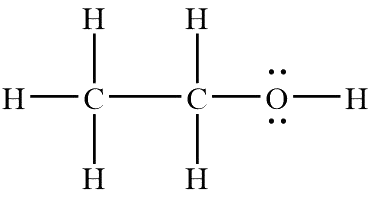|
Alcoholism / Alcohol Use Disorder (AUD)
Ethanol CH3CH2OH addiction via receptors in the brain / nervous system
Neurophysiology : the scientific study of the nervous system
Alcohol affects various receptors in the brain, primarily impacting glutamate and GABA receptors, as well as dopamine and opioid receptors. Specifically, alcohol inhibits NMDA receptors (a type of glutamate receptor), increases GABAA receptor activity (which also involves GABA), and influences dopamine pathways involved in reward. Additionally, alcohol can affect other receptors like opioid, cannabinoid, and serotonin receptors
Synaptic damage can lead to altered neuronal circuitry and impaired sensory-motor function. This damage can involve changes in synaptic inputs to neurons, leading to a loss of neuronal function and potential issues with autonomic functions like blood pressure regulation, bladder control, and bowel function.
 Shakiness / Anxiety
Dizziness or lightheadedness
Sweating
Depression / Anger / Compulsion
Increased alcohol consumption with nausea
An irregular or fast heartbeat
Heartburn and acid reflux
Increased calories, fat on the liver, inflammation, "chronic hepatic congestion: liver" is a condition that precedes liver cirrhosis
Difficulty concentrating / intracranial pressure
Catabolism : Feeling weak (muscle recovery) and having no energy (fatigue)
Insomnia (drinking into the night)
Immune system shutting down
Excessive alcohol consumption can negatively affect eyesight, causing both short-term and long-term vision problems
Hair loss / thinning by hindering nutrient absorption and affecting overall health
Shakiness / Anxiety
Dizziness or lightheadedness
Sweating
Depression / Anger / Compulsion
Increased alcohol consumption with nausea
An irregular or fast heartbeat
Heartburn and acid reflux
Increased calories, fat on the liver, inflammation, "chronic hepatic congestion: liver" is a condition that precedes liver cirrhosis
Difficulty concentrating / intracranial pressure
Catabolism : Feeling weak (muscle recovery) and having no energy (fatigue)
Insomnia (drinking into the night)
Immune system shutting down
Excessive alcohol consumption can negatively affect eyesight, causing both short-term and long-term vision problems
Hair loss / thinning by hindering nutrient absorption and affecting overall health
|
There is no political solution
Alcoholic drinks are legally sold all over the world.
Alcohol addiction (suffering) is politically recognised as able to be self controlled
Alcohol industries :
- Lobby governments
- Advertise mainstream
- Prime time television
- Large public sports events
- A huge revenue for taxes
Research found an article that shows an average of 527 pints of beer drunk a year.
Adult population of London is around 8 million, but aware the drinking age on the streets is lower.
527 (pints) / 365 (days) = 1.44 pints per day
x
8 million (adult population)
=
12 million pints per day consumed in London
|
In the United Kingdom banned drugs are:
- Class A : drugs are treated as the most dangerous and include cocaine, ecstasy, heroin, LSD, magic mushrooms and crystal meth
- Class B : drugs include codeine, ketamine, cannabis and ‘spice’
- Class C : drugs include anabolic steroids, minor tranquilisers, GHB and khat.
|
Perceived benefits
Euphoria Rise In Dopamine Levels
Divination aka drunk driving (a prediction uttered under divine inspiration)
Calms you down : Social lubricant
Enthusiasm
Regulate Some people can just have a couple of drinks, alcoholics cannot
Acceptance (the mental attitude that something is believable and should be accepted as true)
Masks being yourself
Regret : Noody the next day after drinking says "I am glad I did that"
|
Vulnerable adults
A vulnerable adult is unable to protect themselves from harm or abuse due to a variety of factors, including mental or physical disability, illness, abuse during development or age (from youth to old age). They may be unable to take care of themselves or protect themselves from significant harm or exploitation
|
Stages of Recovery
Recovery from alcohol addiction follows physical compulsory stages of :
- Abstinence (best acheived alone)
- Alcohol Withdrawal (Isolation, Seizures, Anxiety, Stress, Hangover)
- Repair (eating only healthy food, supplements, relief, stem cells, rest)
- What triggers a relapse?
- Insanity : repeating the same thing expecting a different outcome
- Inconsistent : displaying a lack of consistency
- Stressfull situations / Arguments
- Specific People
- Anxiety
- Selfish behaviour
- Anger : mood disorders
- Social environments / Social pressure
- Places : Travel / Cities / Towns
- Shopping : Hotels / Clubs / Bars / Supermarket Aisles / Off Licences
- Change in social dynamics
- Where friends recognise the issue
- Older age (Late stage) / aging / growing older will no longer bring recovery
- Suicide
- Changes in tolerance can bring death
- Avoiding bad situations / things go downhill
- Drink driving
- Growth
- Being happier
- Better sleep
- Sobriety causes self discovery / pride / fulfilment / development / productivity / creativity
- Being present, having much more available time
- Focused mental acuity / clarity / genuinely confident / able to face life / enjoy work
- Long term benefits
- Better finances (Taxi's, giving money)
- Skin is brighter, younger, lower body fat, stronger, more clean / clear energy
|
Matthew Perry (19th August 1969 to 28th October 2023) addicted to alcohol (poison), buprenorphine and vicodin died aged 54 years old because of “acute effects of ketamine” and subsequent drowning. His body was found floating face down in a hot tub at his Pacific Palisades home. A quote from his memoir :
"It is very odd to live in a world where, if you died, it would shock people but surprise no one"
"If you spend too much time looking in the rearview mirror, you will crash your car"
"Nobody ever thinks that something really bad is going to happen to them. Until it does"
"Drinkers think they are trying to escape, but really they are trying to overcome a mental disorder they didn't know they had"
Garvin Timmann, turning point on 20th May, 2025 dependant from 15 to 46 years old (31 years), without rehabilitation, no alcoholic anonymous, dosing mesenchymal stem cell into homeostasis causes rejection of alcohol.
|

